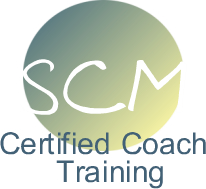
No, and we never intend to be.
WE’RE THE OLDEST COACHING SCHOOL
Actually, we’re probably the newest.
WE’RE THE MOST PUBLICIZED COACHING SCHOOL
No, we rely primarily on colleague referrals to attract our students.
WE HAVE A WORLD-FAMOUS FOUNDER
Not really. But she’s highly respected by many of top coaches, worldwide.
WITH THE MOST CELEBRATED FACULTY IN COACHING
Only one so far, but we do have more fantastic folks ready to step in, as we grow.
WE’LL HOLD YOUR HAND EVERY INCH OF THE WAY
Well, you WILL get lots of attention in our small classes, but we expect a high level of personal responsibility from you.
WE’RE THE CHEAPEST COACHING SCHOOL
Unfortunately, small classes and great teachers tend to cost more, but our introductory fees are VERY attractive.
YOU’RE GUARANTEED TO GET RICH IF YOU SIGN WITH US
Anyone who guarantees that is lying. Don’t sign up unless you LOVE coaching!
WE’RE ICF ACCREDITED
Nope. We’re the first and only school that prepares for IAC Certification from the ground up.
BASED ON THE COACHING COMPETENCIES
No. We’re based on the IAC Coaching Masteries. Why not use the best?
BASED ON THE COACHING PROFICIENCIES
See above.
WE TEACH EVERYTHING YOU'LL EVER WANT TO KNOW
We just teach what's most effective.
YOU CAN LEARN BY JUST LISTENING TO OUR CLASSES
Passive learning doesn't lead to mastery. Every one of our eclasses includes practice and feedback on your coaching.
WE SPONSOR INTERNATIONAL CONFERENCES
Ha! But we do have a few small seminars every year.
THE OWNER IS MAKING MILLIONS
NOT!
WE USE ALL THE LATEST WEB TECHNOLOGY
We use up-to-date technology that facilitates fast learning. Anything more just adds a learning curve that gets in the way.
WE USE THE LATEST COACHING TECHNOLOGY
That’s actually true.
OUR MATERIAL IS THE EASIEST
Hardly, but it is very simple.
WE HAVE THE HIGHEST STANDARDS
Possibly. We ARE doing great work.
WE’RE THE RIGHT SCHOOL FOR EVERYBODY
We do our best work with students who are talented, committed, fast-learners.
CAN A SCHOOL THIS AUDACIOUS BE RIGHT FOR YOU?
Four ways to find out: Take the “Become a Masterful Coach” eClass. Subscribe to Coaching Mastery News. Email questions to info [at] schoolofcoachingmastery [dot] com. Call +1-877-224-2780 to talk to a real person.
Copyright, Julia Stewart, 2007 http://www.schoolofcoachingmastery.com



 While researching "distinctions", an important coaching tool, for a recent class at the
While researching "distinctions", an important coaching tool, for a recent class at the  The very first SCM eClass took place on Thursday, June 7th and I'm very pleased! Fantastic coaches have joined up for the first beta Module and we heard some great coaching during their practice sessions. It's clear that many of these coaches are ready to move into mastery ~ Whoopee!
The very first SCM eClass took place on Thursday, June 7th and I'm very pleased! Fantastic coaches have joined up for the first beta Module and we heard some great coaching during their practice sessions. It's clear that many of these coaches are ready to move into mastery ~ Whoopee!

